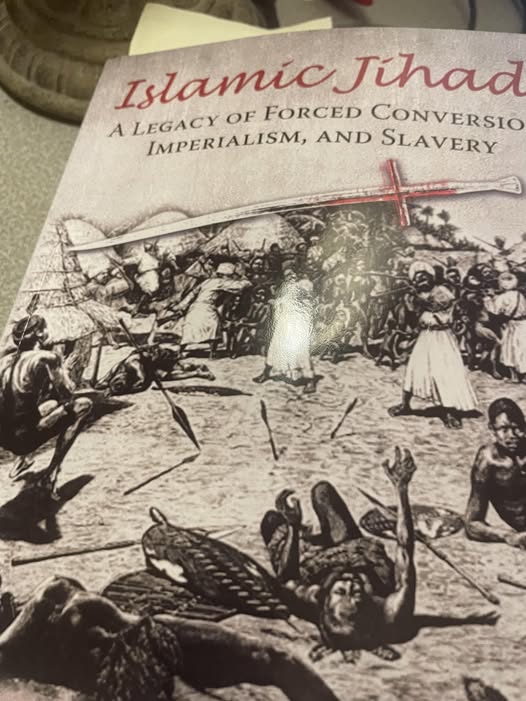Abu Sufiyan, one of Prophet’s fathers-in-law, learning of Muhammad’s approach, went in the darkness of night to meet Muhammad for persuading him not to attack the city. On the way, Abu Sufiyan met his brother Al-Abbas, who assured him protection and led him to Muhammad.
Omar al-Khattab (later the second caliph) came upon them, and seeing Abu Sufiyan, he cried out, “Abu Sufiyan, the enemy of God! Thanks be to God who has delivered you up without agreement or word.” He then rushed for his sword, adding, “Let me take off his head.”
Al-Abbas persuaded Omar against taking drastic actions on the ground of his promise to protect Abu Sufiyan and brought him to Muhammad. Muhammad asked Al-Abbas to bring him back the next morning.
When Abu Sufiyan was brought back the next morning, the Prophet said, “Isn’t it time that you should recognize there is no God but Allah?” Abu Sufiyan never believed that Muhammad was a prophet, and when he hesitated, an angry Muhammad explained, “Woe to you, Abu Sufiyan. Isn’t it time that you recognized that I am the apostle of God?”
To this, Abu Sufiyan answered, “As to that, I still have some doubt.” Seeing Abu Sufiyan’s life in immediate danger, Al-Abbas quickly intervened, forcefully telling him, “Submit and testify that there is no God but Allah and Muhammad is the apostle of God before you lose your head.” With no other option, Abu Sufiyan complied.
Al-Abbas then requested Muhammad to do something for Abu Sufiyan’s people. To this, Muhammad said, “He who enters Abu Sufiyan is safe. He who enters the mosque is safe” (meaning one is safe via conversion).
On returning to Mecca, Abu Sufiyan explained to his people about the futility of opposing Muhammad’s advance into their city and asked them not to fight a losing battle. Instead, he famously said, “Aslim Taslim,” which means, “Become Muslim if you want to be safe.” He advised those who sought to persist in their pagan religion to stay indoors or take refuge in his house.
The next morning, an army marched into Mecca. One recalcitrant group of Meccans, who had fallen on the way of Khalid ibn Walid’s army, showed meek resistance. Khalid slaughtered those who fell within his reach and pursued others who raced to save their lives up the hill.
Upon capturing Mecca, Muhammad ordered the destruction of all idols of the Kaaba, shouting out, “Truth has (now) arrived, and falsehood perished: for falsehood is (by its nature) bound to perish.” This was later revealed as a verse and included in the Quran (17:8).
Muhammad stood in the middle of the Kaaba, and as he pointed to the idols, passionately worshipped by the devout Meccans for centuries, with a stick one by one, they were smashed into pieces. Muhammad himself destroyed a wooden dove, a deity of the Quraysh.
(M.A. Khan, A Legacy of Forced Conversion, Imperialism, and Slavery, iUniverse, Inc, 2009, pp. 38-39)



